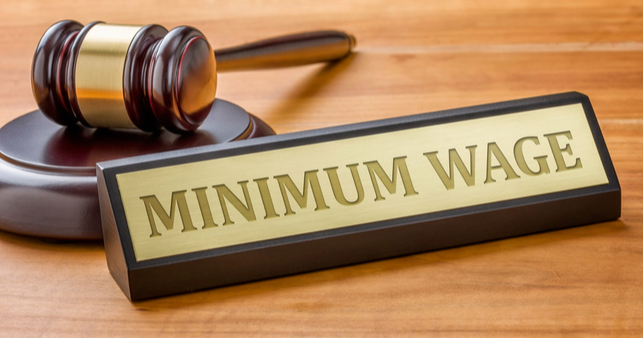
The purpose of the Minimum Wage Act 1983 (the Act) is to set out the minimum wage rates for adult employees, trainees and apprentices. The Act also outlines the process of issuing minimum wage exemption permits for employees limited by a disability in carrying out the requirements of their work. Each year, the government reviews the Act, which often leads to an increase for each type of minimum wage rate, so it is important for employers be up-to-date on the latest changes or risks facing serious penalties.
What are the three types of minimum wage?
As of 1 April 2023, the minimum wage rates apply to the following workers aged 16 years or over:
1) Adult Minimum Wage – $22.70 Per Hour
This is the wage most commonly used by businesses in New Zealand and applies to employees over 16 years of age.
2) Starting-Out Minimum Wage – $18.16 Per Hour
This applies to employees aged 16-19 entering the workforce for the first time. However, there are certain requirements to use this wage rate.
3) Training Minimum Wage – $18.16 Per Hour
This applies to employees 20 years or over who involved in relevant industry training to become qualified. However, there are certain requirements to use this wage rate.
Minimum wage increase – 1 April 2023
New Zealand’s government has increased the adult minimum wage to $22.70 per hour with effect from 1 April 2023.
Exemptions
There is no minimum wage rate for workers under 16 years of age. However, employers must remember to switch employees to the minimum wage rate once they turn 16. Should an employer fail to adjust the rate, they may be fined under the Employment Relations Act 2000, and also be liable for the recovery of underpaid wages.
Other exemptions outlined in the Act include:
apprentices who are under any other Act
inmates of any charitable institution
prisoners working in custody under the Corrections Act 2004
employees who travel between clients, which are instead covered by the Home and Community Support Settlement Act 2016
Exemptions for disabled workers
In some cases, an employee may have a disability that limits them carrying out the requirements of their job. Under a mutual agreement with the employee, employer and a labour inspector, the employee can be issued a minimum wage exemption permit, which allows the employer to pay a proposed minimum wage lower than the national standard for a specific job and time period.
To issue a minimum wage exemption permit under the Act, the employer and employee have to discuss the requirements of the job and negotiate a new minimum wage. During these negotiations, the employee can be accompanied by a union representative, advocate or independent representative for guidance and support.
A labour inspector will not issue a minimum wage exemption permit if they, a representative, or the employee do not agree to the proposed pay rate. Or if the labour inspector feels the employee deserves the base minimum wage rate.
What happens to employers who do not pay the minimum wage rate?
Any employee who thinks they are being paid less than the minimum wage can contact the Employment Relations Authority. This organisation has the authority to enforce compliance and the recovery of wages due to underpayments.
If an employer is caught underpaying their workers, they may be liable for penalties under the Employment Relations Act 2000 and the recovery of wages directly to workers or a labour inspector on behalf of the affected workers.
For advice on understanding the Act 1983, contact Employsure on 0800 568 012.



